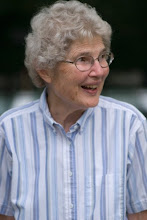
Guest Post by
Vilo ElisabethI was introduced to the term Caucajewmexdian by my brother. It's a shorthand he invented to describe the ethnic mix that we share. Useful for saying things like “He's one of the best Caucajewmexdian writers.” or “she's a top Caucajewmexdian photographer.” I'm sure it will catch on. The breakdown is Caucasian, Jewish, Mexican, and Indian. India Indian, as we used to say to differentiate from American Indian, or Native American. What most people would call Eastern Indian. It occurred to me the other day, while I was floating blissfully in the Atlantic Ocean, that the CA in Caucajewmexdian also stands for California, where our father was raised.
---
My father grew up in Mission Beach, living in a summer home that the family eventually lived in year round. The story, as I remember it, was that Grandma Betty asked the children at the close of one summer if they wanted to leave. They said no, so she said alright, and they stayed. They had a house in another part of San Diego that they used to spend the school year in, I'm not sure what happened to it.
This summer house was known by all as the beach house, and for a brief period called the sand house by my youngest brother. You could sit on the second story porch and look through the tree boughs to the expanse of Mission Bay directly in front. When my father was young, the house was surrounded by empty fields. By the time it became my childhood vacation home, it was 3 blocks through narrows walkways between closely packed condos and bungalows and across one busy street to the Pacific Ocean.
---
My father learned to swim by chasing an escaped boogie board to the middle of the bay, against his better judgment, which kept him from participating in swimming lessons. He was halfway across before he realized that he was swimming. My mother's father, by comparison, learned to swim in India by hanging onto the water buffalos' tails when he took them to the pond. Years later, this same man took his children to the beach in San Diego. When my father first saw pictures of my mother on a beach trip from her childhood, he recognized the water—it was his own bay, just the other side. Who knew that his wife was waiting across the water for him all those years ago?
It was my mother and then my grandfather that taught me to swim in the city pool, standing in the water and beckoning me to leave the safety of the wall and traverse the distance to the safety of their arms. But it was my father that taught me to love the ocean. He stood by me, holding my hand, and showing me when to jump to keep above the waves. It is a skill that I carry with me to this day. I don't remember if I was afraid of the ocean before that, but I was a timid child, so I very well may have been. My maternal great-grandmother, who once ran against her husband for mayor and won, had not seen the ocean until crossing it to come to America. She couldn't believe that her grandchildren were allowed to play near the water— “it has no end!” she exclaimed, and locked herself in the car, refusing to join them on the beach. She did think that America was a great country for the fact that you could by crisped rice—an essential ingredient for the Indian delicacy Maroondas (known to Americans as Rice Crispy Treats) in a box at the grocery store.
But the fact that you cannot see the end of the ocean does not bother me. I find peace in the rolling waves, serenity in the rise and fall of the water. I let my mind and body relax, and enjoy the expanse of water, sand, and sky. I think of the first woman I saw give birth, and how she reminded herself to “ride the wave” during rough contractions. Now I live near the Atlantic Ocean, and although it is still not as familiar as the Pacific, does bring thoughts of my family. I miss my brothers, who would have fought with me to pass through the breakers. We would have bobbed in the water together, talking and watching for the next swell.
---
When Grandma Betty, the woman who raised my father and the matriarch of the family, passed away, I met my father in San Diego for the funeral. After the funeral we went to his favorite spots—the beach where the seals congregate, Sunny Jim cave, the beach house. As we walked he told me about his childhood, and the places he used to go. The places his father would take him when he came down to visit. We each took a few books from the built in bookshelves at the beach house. A reminder of the time I used to spend bobbing on an ocean of words during our stays there, curled up in the window seat with the gargoyles carved in wood near the ceiling gazing down.
It was sad to realize a certain time and place was now inaccessible, except in memory, photos, and the stories we tell each other and ourselves. No more will my siblings and I race from the car to be the first to open the wooden gate to the beach house. To hear Grandma Betty call down from the upstairs porch. To eat her tamale pie or her corn cakes out of sea shell plates while we watch the bay. I can tell my children about my summers there, but unlike my father I cannot take them back to the house itself.
I will, someday, take my children to the ocean. It might not be the Pacific, but I can still stand next to them, hold their hands, and tell them to jump.



